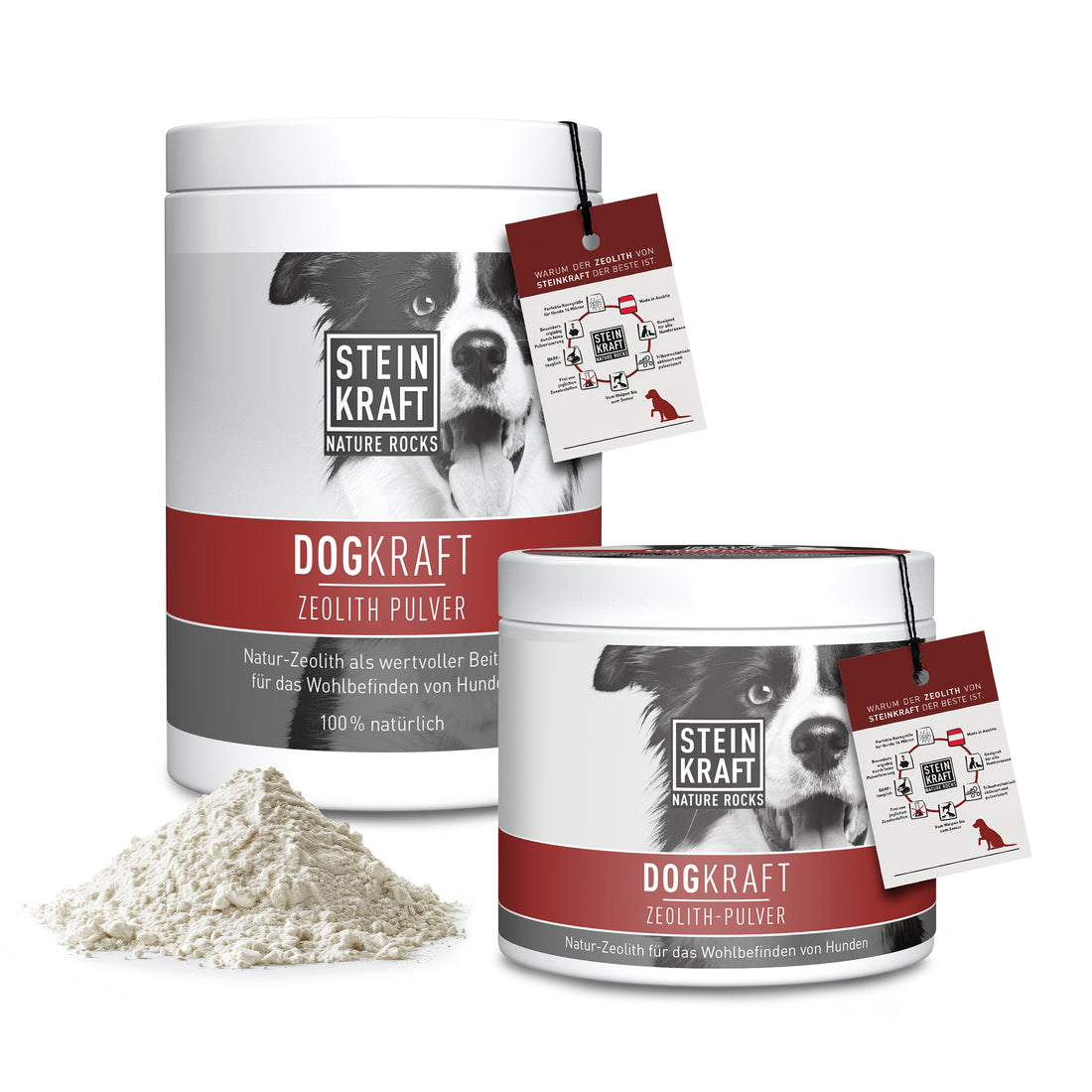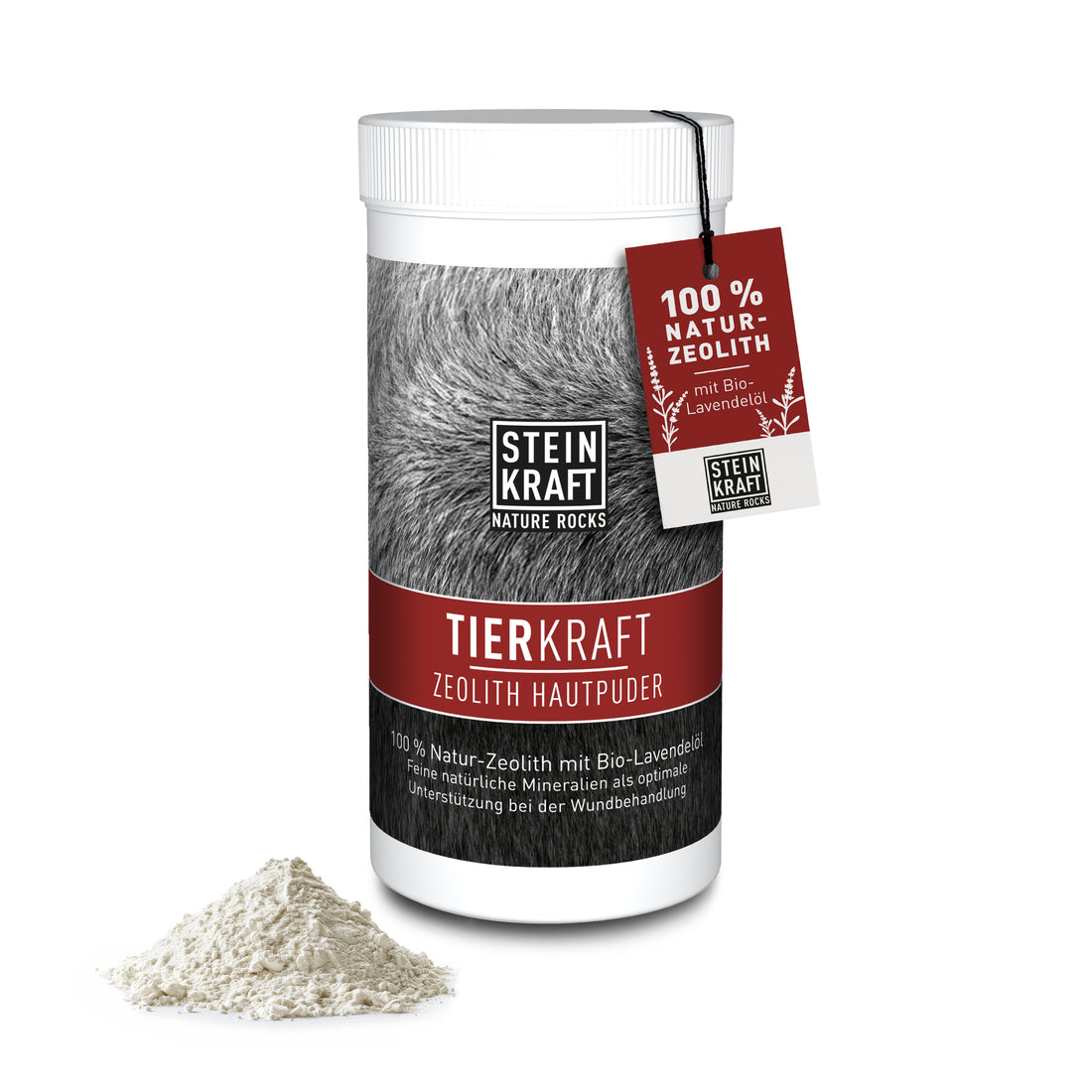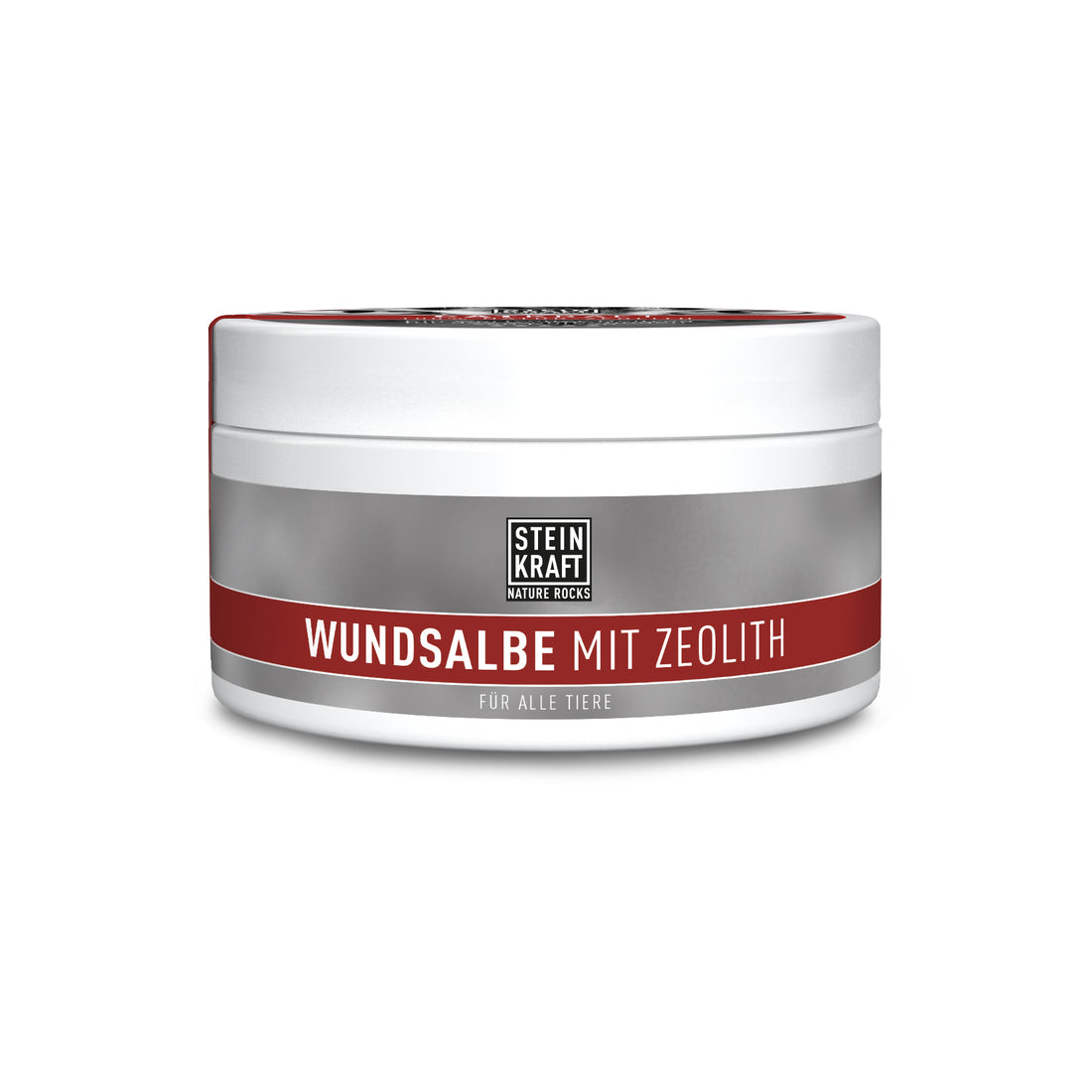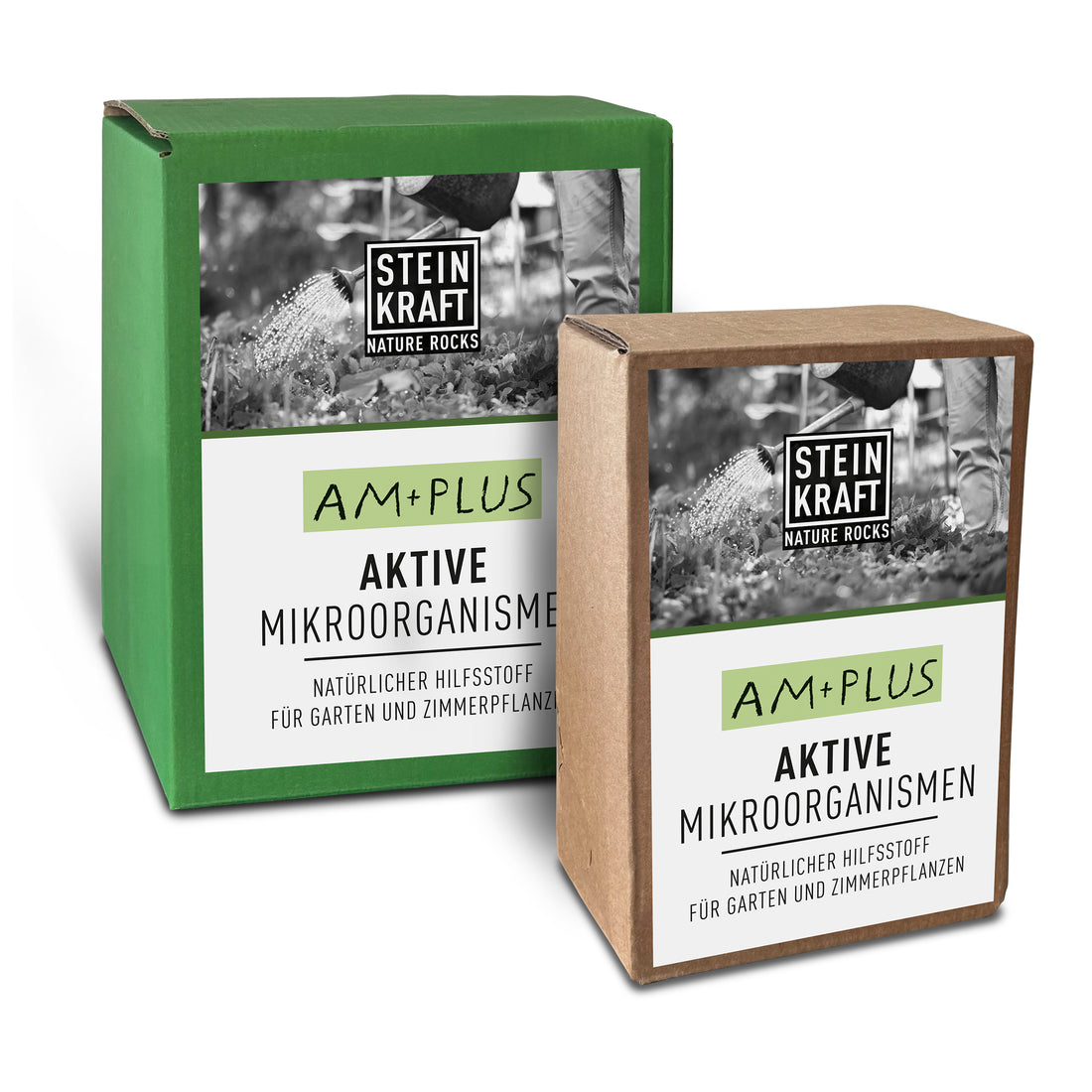Dogs in winter
Our dogs – they are more than just animals; they are family members, loyal companions, and little creatures that bring out the best in us. It's said, "Give a man a dog, and his soul will be healed." And isn't that exactly what they do? They accompany us with unconditional love, take us out of the daily grind, and show us how beautiful life's little moments can be. Even in winter, when it's cold, wet, and dark outside, they remind us to appreciate the world—yes, even to honor winter.
But how can we give something back to our dogs during this time of year? Winter presents their needs with unique challenges, and there's a lot we can do to help them get through the cold days safely and happily.
Our four-legged friends' paws carry them through every adventure, but in winter they need a little extra attention. Road salt, ice, and snow can irritate or even injure their pads. With a protective paw balm and a thorough cleaning after every walk, we keep their sensitive paws healthy. And if you like, you can even treat them to little paw shoes—because why shouldn't they, too, be able to walk warm and protected through the winter?
While we're wrapped up in our cozy coats, we should also think of our dogs, especially those with little or thin fur . A well-fitting winter coat ensures that even sensitive furry friends can enjoy the cold. Because let's face it: Nothing is more beautiful than a dog romping happily through the snow, making you forget all your worries.
And then there are the challenges posed by road salt and environmental toxins , which are especially prevalent in winter. With a little attention—whether it's trimming their paws, regular cleaning, or using pollutant-binding agents like zeolite—we can help our pets stay healthy. After all, their health is important to us.
Even though it's sometimes difficult for us humans to leave the warmth of our homes in winter, our dogs help us see the season in a new light. They draw us out into the snowy outdoors, let us breathe in the cool, clear air, and remind us that exercise is good for us. They teach us to see winter not as uncomfortable, but as a magical, tranquil time—as an opportunity to enjoy the silence and beauty of the world.
Our dogs give us so much. They are soul healers, motivational coaches , and friends all rolled into one. When we treat them with a little extra care, warmth, and attention in the winter, we show them how much we appreciate their love. And who knows, maybe we, too, will learn not just to love winter, but to honor it—thanks to these little creatures who brighten our lives every day. ❄️❤️
Danger from road salt: What it can do to paws and the body
Road salt can be a real strain on dogs' sensitive paws. It dries out the skin, can lead to painful cracks and inflammation, and irritates sensitive pads. It's especially dangerous when road salt gets into small wounds, causing intense burning and itching. But it's not just the paws that are affected – when dogs ingest road salt by licking it, the chemical components can cause health problems. Common symptoms include gastrointestinal upsets such as vomiting, diarrhea, or abdominal pain . Larger amounts can even lead to serious poisoning, as the salt disrupts the body's electrolyte balance. Therefore, it's especially important to thoroughly clean the paws with lukewarm water after every walk to help your dog get through the winter safely and healthily. ❄️
Possible ingredients in road salt that are not good for our dogs.
I wanted to know more about the ingredients that road salt can contain, especially because our dog has already reacted with diarrhea and vomiting twice this winter. He licks his paws—of course—and also licks snow with road salt on it.
Road salt, which is mainly used for ice and snow removal, usually consists of a mixture of different chemical substances.
Here are possible ingredients we have researched:
1. Sodium chloride (NaCl)
- The main ingredient in road salt, also known as conventional table salt.
- Works by lowering the freezing point of water, thus preventing the formation of ice.
2. Calcium chloride (CaCl₂)
- Often used as an additive because it is more effective than sodium chloride at extremely low temperatures.
- Very hygroscopic (attracts moisture) and can therefore dry out the skin.
3. Magnesium chloride (MgCl₂)
- Similar to calcium chloride, it is used to increase the effectiveness of road salt in cold temperatures.
- May be irritating to skin and mucous membranes.
4. Potassium chloride (KCl)
- Less commonly used, but another option as it also lowers the freezing point.
5. Additives and anti-caking agents
- Substances such as iron(III) oxide hydroxide or sand are often added to prevent the salt from clumping.
6. Contaminants and impurities
- Especially inexpensive road salt can contain contaminants such as heavy metals or other residues that can also be harmful to health.
While these ingredients are effective against ice and snow, they can be problematic for both dogs and the environment. Calcium and magnesium chloride, in particular, are highly irritating to sensitive dog paws , and if ingested, they can cause gastrointestinal upset or, in the worst case, poisoning . Therefore, contact with road salt should be avoided as much as possible.
How to support your dog in winter
1. Paw care
- Trim paw hair: Keep the hair between the pads short to prevent snow or ice from accumulating there.
- Protection from road salt and ice: Paws are especially sensitive. Apply paw balm or coconut oil before a walk to protect the pads.
-
Cleaning after the walk: Wash the paws with lukewarm water to remove any road salt residue and dry them thoroughly to avoid cracking.
Recipe 1: Soothing paw balm with zeolite and coconut oil
Ingredients:
- 2 tbsp coconut oil
- 1 tbsp shea butter
- 1 tbsp beeswax (or vegan alternative such as candelilla wax)
- 1 teaspoon zeolite powder (high quality, finely ground)
- 1 drop of lavender oil (optional, soothing and skin-friendly)
Directions:
- Melt coconut oil, shea butter, and beeswax in a double boiler until all ingredients are liquid.
- Remove the mixture from the heat and stir in the zeolite powder thoroughly until no lumps remain.
- Add (optional) 1 drop of lavender oil and mix well.
- Pour the mixture into a clean glass jar or small container and allow it to cool and solidify at room temperature.
- Store the balm in a cool place and apply it to your dog's paws before walks.
Recipe 2: Moisturizing paw balm with zeolite and olive oilIngredients:
- 3 tbsp olive oil (cold-pressed)
- 2 tbsp cocoa butter
- 1 tbsp zeolite powder
- 1 tsp vitamin E oil (promotes skin health)
- 1 drop of chamomile oil (optional, anti-inflammatory)
Directions:
- Gently heat the olive oil and cocoa butter in a double boiler until the cocoa butter has melted.
- Slowly stir in the zeolite powder until it is completely dispersed.
- Add the vitamin E oil and optionally 1 drop of chamomile oil.
- Pour the mixture into a small, clean container and let it cool.
- Store the balm in a cool, dry place. Apply it regularly to your dog's paws to keep them soft and protected.
Both recipes are easy to make, natural, and gentle on your dog's sensitive paws. Zeolite helps bind pollutants and soothe the skin, while the oils and butters moisturize and protect against the cold. Have fun trying them!
Practical ideas on how to clean your dog's paws
Cleaning your dog's paws after a winter walk is essential to remove road salt, dirt, and ice residue. Here are some practical and simple ideas for keeping your dog's paws clean and healthy:
1. Wash paws with lukewarm water- What you need: A bowl of lukewarm water or a small bucket.
- Here's how: Dip your dog's paws into the water, one at a time, to loosen road salt and dirt. Be careful not to make the water too hot or too cold.
-
Tip: For sensitive paws, use a few drops of mild, dog-friendly shampoo or a special paw care soap.
2. Wet wipes or paw cleaner
- What's needed? Moist, unscented wipes or special dog wipes.
- Here's how: Wipe the paws thoroughly, especially between the pads and toes, where dirt often accumulates.
- Tip: Wet wipes are especially useful when you're on the go!
3. Paw cleaning gloves
- What you need: Special microfiber gloves for gentle cleaning.
- Here's how: Slip the glove over your hand and massage the paws to remove dirt and salt.
- Tip: These gloves are machine washable and environmentally friendly.
4. Paw cleaning cup
- What you'll need: A paw cleaner cup with integrated brushes (available commercially).
- Here's how: Fill the cup with lukewarm water, place a paw in, and gently rotate the cup. The brushes clean effectively without irritating the pads.
- Tip: Ideal for dogs who spend a lot of time outdoors!
5. Dry brushing after the walk
- What you'll need: A soft brush or a small towel.
- Here's how: Remove dry dirt particles and snow before your dog licks his paws.
- Tip: This method is good if you don't have water on hand.
6. Paw bath with chamomile
- What do you need? Chamomile tea (lukewarm).
- Here's how: Dip the paws in a bowl of chamomile tea to soothe irritated pads and remove road salt residue.
- Tip: Chamomile also has anti-inflammatory and calming effects.
After cleansing: Keep dry and supple
- After cleaning, dry the paws thoroughly with a soft towel, especially between the toes.
- If necessary, apply paw balm or coconut oil to protect the skin from drying out.
With these simple methods, your dog's paws will stay clean, healthy, and protected – so you can enjoy the winter season without worry!
2. Protection from the cold
- Winter coats for sensitive dogs: Small, short-haired, older, or sick dogs get cold more quickly and benefit from a warm coat.
- Don't take walks that are too long: In extreme cold, walks should be shortened to avoid hypothermia.
3. Road salt and environmental toxins
- Toxic hazards: Road salt and other chemicals can irritate paws or even be toxic if licked. Our dog recently had diarrhea and a week later vomited. I'm pretty sure both are from licking the road salt and whatever's in it.
- Paw protection: Paw boots are an effective way to protect sensitive pads. Pads are naturally constantly exposed to these pollutants on the street.
4. Nutrition and water intake

- Adapted diet: Dogs that spend a lot of time outdoors may have higher energy needs in winter. Adjust the amount of food if necessary.
- Fresh water: Make sure your dog drinks enough, even in winter. Frozen water is not an option!
5. Safety while walking
- Reflectors and lights: Since it is often dark in winter, reflective leashes, collars or vests ensure that your dog remains clearly visible.
- Caution when using frozen water: Keep your dog away from thin ice as there is a risk of falling through.
6. Coat and skin care
- Regular brushing: Although winter fur protects against the cold, it should be cared for to avoid skin irritation.
- Drying after a walk: If your dog gets wet, dry him thoroughly to prevent colds.
- Drying the collar: We have a leather collar—not us, but our dog—and when he's romping in the snow, it gets wet from the humid air. Take the collar off, hang it by the fire or next to the heater, perhaps spray it with microorganisms, and ask the little helpers for help, while you dry and brush the dog's neck.
7. Retreat
- Warm sleeping place: Make sure your dog has a warm, draft-free place to rest at home.
With these tips, you can protect your dog from the challenges of winter and ensure that you can enjoy the cold season together.
Dogs in winter – how can zeolite help?
Winter is an exciting but also challenging time of year for our dogs. Cold temperatures , road salt, and reduced exercise can negatively impact our four-legged friends' well-being. Zeolite can provide natural support and help your dog stay healthy and happy through the cold months.
Zeolite is a true all-rounder when it comes to strengthening the immune system. Especially in winter, your dog's body is subjected to greater stress due to cold, fluctuating temperatures, and less sunlight. Zeolite has a detoxifying effect by binding harmful substances ingested through food, water, or the environment and safely excreting them from the body. This relieves the immune system and helps it stay strong. At the same time, zeolite provides important minerals like silicon, which can support your dog's cell structure and defenses.
Another benefit of zeolite is its detoxifying effect when exposed to road salt or other environmental toxins. Especially in winter, dogs often come into contact with such substances – whether through their paws, their fur, or through licking. Zeolite helps remove these residues from the body, ensuring your dog remains unaffected.
Zeolite can also benefit digestion, especially during the colder seasons when dogs are often less active. It promotes healthy intestinal flora by binding harmful bacteria and supporting the natural balance in the gastrointestinal tract. If your dog is struggling with flatulence or digestive problems, zeolite can also provide relief.
But it's not just the inside that benefits – your dog's skin and coat can also benefit from the support of zeolite in winter. Cold and dry air from heating systems can dry out or irritate the skin and coat. Thanks to the silicon it contains, which is important for collagen formation, zeolite supports healthy skin and ensures a shiny coat. Zeolite can even be applied externally to promote healing for minor skin irritations or dry patches.
Winter can be a particularly stressful time for older dogs or those with joint problems. The anti-inflammatory properties of zeolite can help relieve pressure on joints and maintain mobility. This allows them to enjoy the cold months without pain. 
Using zeolite is incredibly easy: Simply mix a small amount—depending on your dog's size—into their daily food and gradually increase the dosage. For external applications, the powder can be applied directly to the affected areas. And don't worry: Zeolite is completely natural and well-tolerated.
With zeolite, you can gently help your dog get through the winter. It supports the body holistically, promotes well-being, and helps your four-legged friend enjoy the cold days healthy and full of energy. After all, we all want our dog to stay happy and alert, even in winter!
How zeolite can support dogs in winter
1. Support of the immune system
In winter, your dog's immune system is particularly challenged. Cold temperatures, less sunlight, and contact with other dogs can weaken their defenses.
- Zeolite has a detoxifying effect: Pollutants ingested through food, water, or the environment burden the immune system. Zeolite binds these toxins in the gastrointestinal tract and ensures their excretion.
- Mineral supply: High-quality zeolite contains important minerals such as silicon, which can promote healthy cell structure and strengthen the immune system.
2. Detoxification from road salt and environmental toxins
When walking in winter, your dog often comes into contact with road salt or chemicals that can be absorbed through his paws or fur.
- Promote toxin elimination: Zeolite binds heavy metals and chemical residues that could accumulate in the body.
- Protection from pollution: Regular zeolite supplements can help minimize exposure to such substances and promote well-being.
3. Promotes digestion
The colder season can affect your dog's digestion, especially if less exercise is possible.
- Strengthen intestinal health: Zeolite supports a healthy intestinal flora by binding harmful bacteria and promoting the natural balance in the gastrointestinal tract.
- Relief from stomach problems: Zeolite can relieve bloating, diarrhea, or other stomach upsets that might be caused by winter dietary changes or cold weather. Or by licking up road salt!
4. Coat and skin health
Cold air outside and dry, heated air inside can dry out or irritate your dog's skin and coat.
- Silicon for healthy coat: Zeolite contains silicon, a mineral that is important for collagen formation and thus contributes to shiny coat and healthy skin.
- Soothe irritation: Zeolite can be applied externally to soothe irritated skin or support wounds.
5. Strengthening the joints
Winter temperatures can worsen joint pain in dogs, especially older or arthritic animals.
- Anti-inflammatory: Zeolite has anti-inflammatory properties that can reduce pain and swelling in the joints.
- Long-term support: Regular use can help keep joints mobile and healthy.
A well-groomed dog is a happy dog—especially in winter, when cold, snow, and road salt present their own unique challenges. With a little attention, love, and natural remedies like homemade paw balm, we can protect our loyal companions from the rigors of the cold season. Zeolite, combined with nourishing ingredients, not only supports the health of sensitive paws but also provides your dog with well-being and comfort.
Our dogs give us so much; they enrich our lives every single day. It's up to us to give them the care they deserve, even during the frosty season. So we can romp carefree through snowy landscapes together, enjoy the fresh winter air, and experience the magic of this special time. Because our four-legged friends show us how to savor the moment—and they remind us that winter is a time full of little miracles. ❄️❤️













































